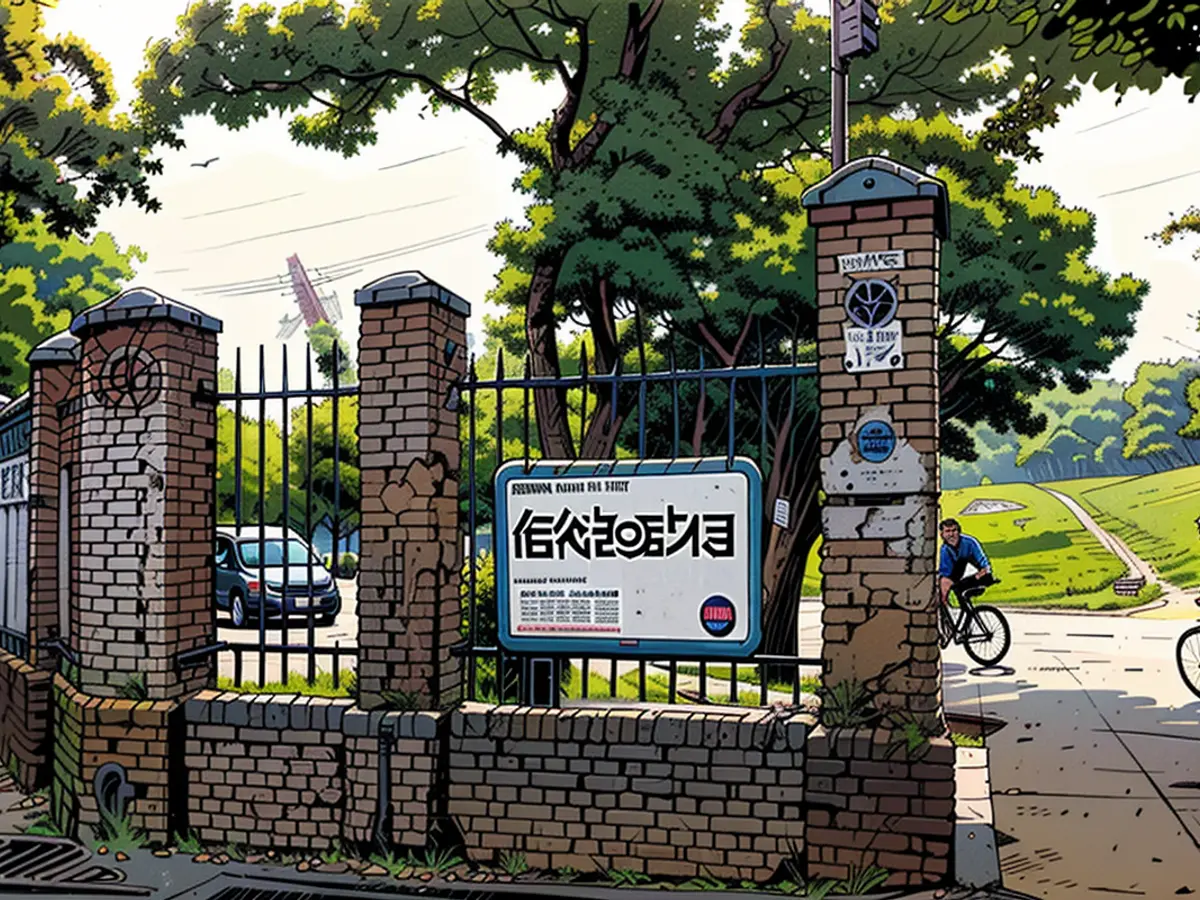Görlitzer Park - Dispute over fence at Gorlitzer Park goes to court
The dispute over the Senate's planned fence and night-time closure of the Görlitzer Park continues in court. The district of Friedrichshain-Kreuzberg does not accept the Berlin Administrative Court's decision in the expedited proceedings, as a spokesperson stated in response to an inquiry. "The district office has understood in its current session to file a complaint against the Berlin Administrative Court's decision from July 10, 2024," it was stated. The case will therefore be heard by the Higher Administrative Court Berlin-Brandenburg.
The Administrative Court had declared the urgent application invalid in the previous week. The Green-led district had "no defensive rights" against the interference and the Senate's decision to build a fence around the Görlitzer Park, according to the judges. The district is not an independent community, but assumes tasks as a subordinate part of the unitary community Berlin.
Friedrichshain-Kreuzberg does not want to accept this and hopes for a fundamental clarification from the next instance regarding the possibilities that districts have against the exercise of interference rights by Senate administrations, according to the spokesperson. The court's argumentation did not convince the authority.
Green district mayor Clara Herrmann told the daily newspaper "Taz" (Tuesday) that she could not understand the court's argumentation because the districts were "delivered to the political whim of the Senate". "In fact, the Senate's environmental administration can now begin building the fence and gates in our park," said Herrmann.
Herrmann: Residents want more police
The Berlin Senate wants to prevent drug criminality and confrontations with entrance gates and a night-time closure of the park. The governing mayor of Berlin, Kai Wegner (CDU), had announced that even if the district remained opposed, the entrance gates and walling would be built.
Friedrichshain-Kreuzberg wants to prevent these plans and stop the planning. Critics of the plans argue that drug dealing will only be pushed further onto the streets surrounding the park. Bezirksbürgermeisterin Herrmann said that most residents of the streets around the park would prefer more presence and visibility of police on foot. However, the Greens had opposed a new police station at the nearby Kottbusser Tor.
In the past few months, announced construction dates for the controversial expansion of the wall around the park have been repeatedly postponed by the Senate. Therefore, no one expects the park to be closed at night this year, as the original goal of the Senate was.
- The district of Friedrichshain-Kreuzberg, disagreeing with the Berlin Administrative Court's decision, has decided to file a complaint against it at the Higher Administrative Court Berlin-Brandenburg.
- Clara Herrmann, the Green district mayor of Friedrichshain-Kreuzberg, expressed her disappointment with the court's argumentation, stating that districts are often subject to the political whims of the Senate.
- In response to the Senate's plans to combat criminality in Görlitzer Park by building a fence and implementing night-time closures, residents of the surrounding streets have voiced their desire for increased police presence and visibility.
- The dispute over the fence and night-time closure of Görlitzer Park has resulted in a court process with several stages, including an appeal by the district and a decision by the Berlin Senate to proceed with the fence and gates, despite opposition from municipal leaders.
- Although the process in the Administrative Court has not resulted in the expected night-time park closure this year, residents and local officials continue to engage in discussions about the best ways to address criminality and maintain the community's social fabric in the area.








